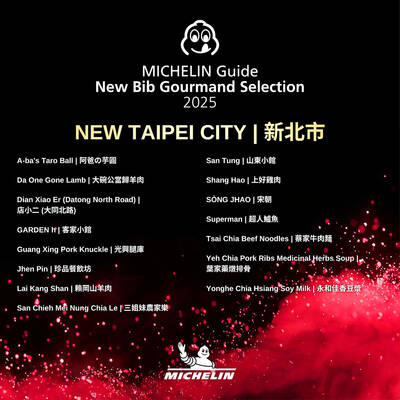Have you ever worked in a group or on a team? If you have, you know that it's important for everyone to do his or her job in order for the group to succeed. If one person makes a mistake, you can say that that person “dropped the ball.”
Dropping the ball isn't just making a mistake. Think about a sports team. It's easy to make mistakes, like not catching a ball or not running fast enough. But if you drop the ball, you made a mistake that should have been really easy not to make, and will probably make your whole team mad.
This idiom is just like that, so it's easy to remember. If you need people to do their job well, but you are worried they might make a mistake, you can warn them “Don't drop the ball.”
Look at the dog in this picture. Does he look like he might drop the ball he's holding? Not likely; he looks like he's having too much fun playing a game. (Kayleen Hartman, Staff Writer)
你曾經參加過團體或團隊嗎?假如你有,你知道為了達成團體目標,每個人分工合作是很重要的。假如有人犯錯,你就可以說那個人是「dropped the ball」。
「dropping the ball」不只是犯錯而已。想一想一支體育隊伍。人們很容易犯下像是沒接到球、或跑得不夠快的過失。不過,假如你「drop the ball」,你就是犯下不該犯的錯,可能讓整支隊伍抓狂。
這個片語就像這樣,所以很容易記。假如你希望人們把事情做好,但你又擔心他們可能會有過失,你可以警告他們「don't drop the ball」。
看看照片中的狗。他看起來像是會把所掌握的球丟了嗎?不太可能,他看起來對這遊戲似乎玩得不亦樂乎。 (翻譯︰賴美君)

When Nvidia CEO Jensen Huang revealed on Friday last week that the company is working with the Trump administration on a new computer chip designed for sale to China, it marked the latest chapter in a long-running debate over how the US should compete with China’s technological ambitions. The reasoning has sometimes changed — with US officials citing national security, human rights or purely economic competition — but the tool has been the same: export controls, or the threat of them. Nvidia believes it can eventually reap US$50 billion from artificial intelligence (AI) chip sales in China. But it so far has

In 2024, multiple airplane accidents caused severe casualties, including a Jeju Air disaster at the year’s end. However, not all incidents ended in tragedy. Early in the year, a Japan Airlines flight caught fire after landing in Tokyo, but all 379 passengers and crew members escaped within 90 seconds. This event highlights the “golden 90 seconds” that experts emphasize — most survivors evacuate the plane within this critical window. Proper preparation ensures you can act quickly and decisively during these crucial moments when every second counts. Your survival strategy begins before takeoff. Wear long pants, a comfortable top, and

A: The Michelin Guide Taiwan announced the 2025 Bib Gourmand eateries and starred restaurants last week. B: What were the highlights this year? A: In addition to Taipei, Taichung, Tainan and Kaohsiung, New Taipei City and Hsinchu City and County were included for the first time. B: As a New Taipei resident, I can’t wait to try all the awarded local delicacies. Should we start from the more affordable Bib Gourmand selection? A: Sure, New Taipei and Hsinchu each boast 15 Bib Gourmand eateries now, including some famous establishments such as San Tung restaurant. A: 2025《米其林指南》近日公布「必比登推介」和星級餐廳。 B: 今年的名單有哪些亮點? A: 除了台北、台中、台南、高雄,今年加入新北、新竹縣市! B: 身為新北人,我真想吃遍當地的美食,我們要不要從平價的必比登先開始? A: 好啊新北、新竹各有15家入選必比登,像山東小館等知名餐廳都有上榜唷。 (By Eddy Chang, Taipei Times/台北時報張迪)

Week 23 : 詞法——名詞 1. 請給我兩張紙。 ˇ Please hand me two sheets of paper. χ Please hand me two papers. 註︰paper 作物質名詞(material noun)「紙」解時,沒有複數形式,要表達數量時前面要加量詞,作「學術報告」、「報紙」、「考卷」或「論文」等解時,可有複數形式。常見的物質名詞還有麵包(bread)、粉筆(chalk)等。 2. 祖母的頭髮已變灰白了。 ˇ Grandmother’s hair has already turned gray. χ Grandmother’s hairs have already turned gray. 註︰hair 統指頭髮(或毛)時只用單數。hairs 指多根頭髮(或毛),例如:She has several gray hairs.。另外,英文裡提到白頭髮習慣上多以 gray 一詞來代替 white,較為委婉含蓄。 3. 他沒有多少工作要做。 ˇ He doesn’t have a lot of work to do. χ He doesn’t have a lot of works to do. 註︰work 若指「工作」是不可數名詞,不能加 s,且不用不定冠詞。work 的複數形式表示下列幾種意義:(1) 著作,如 Chaucer’s works;(2) 工廠,如 China Steel Works;(3) 機器的轉動部分,如 the works of a watch;(4) 工程,如 public works。 4. 這是個好消息。 ˇ This is very good news. ˇ This is great news. χ This is such a good news. 註︰news 是不可數名詞,雖具有複數形式,但只用作單數,前面不可加 a,後面的動詞也應用第三人稱單數,如:Bad news travels quickly.